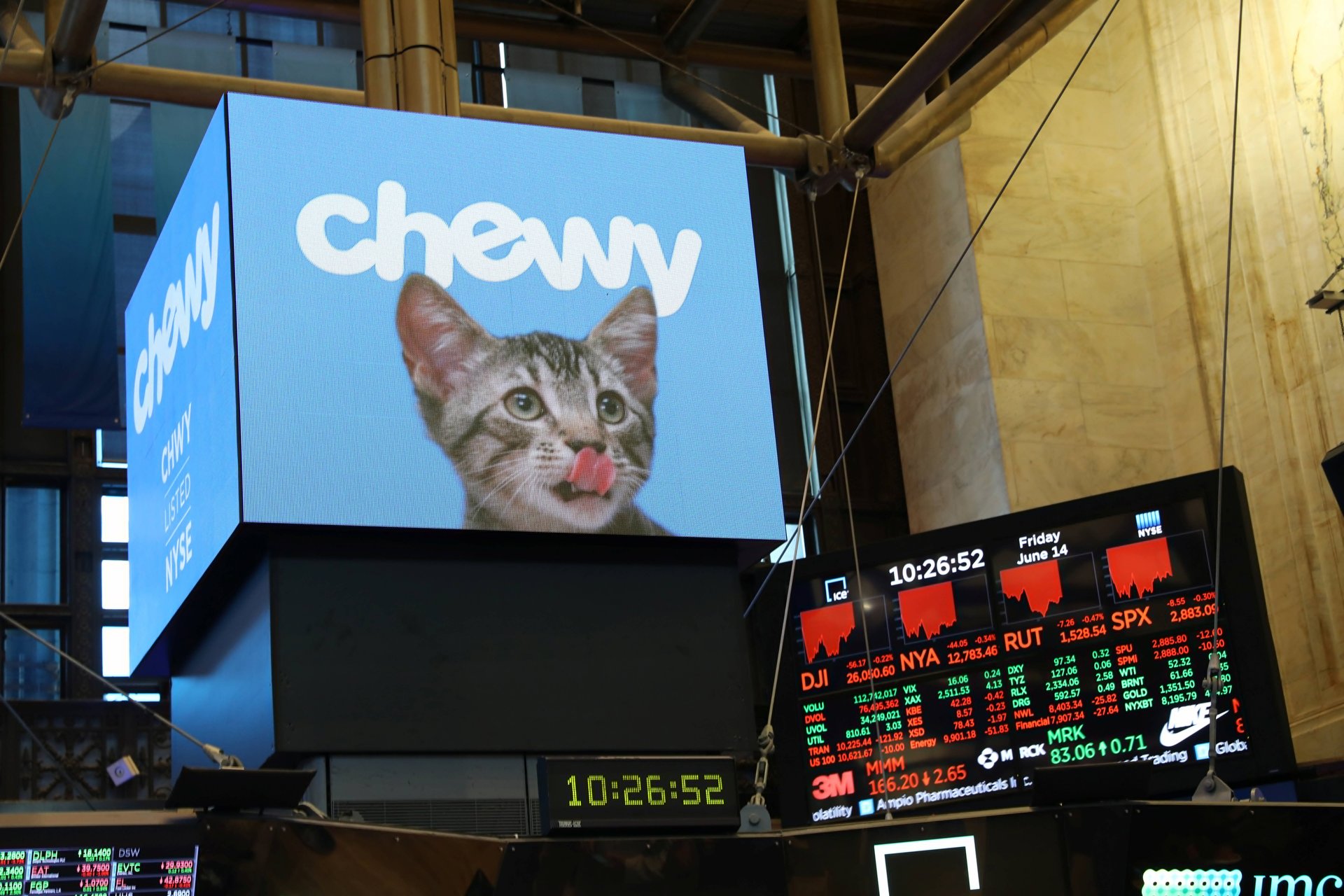🌎The $1 billion pet med business
Plus: The tech keeping Palestinians connected.

Good morning, Quartz readers!
Suggested Reading
Here’s what you need to know
China’s exports grew for the first time in six months. Numbers from November indicate that factories may be getting back on track after a prolonged slump in demand.
Related Content
The US releases its latest jobs report today. Bullish bond traders hope the numbers, which are expected to show moderate employment and wage growth, will indicate more economic cooling.
Amazon is testing a grocery service for Prime subscribers. For $9.99 a month, members can get unlimited deliveries from Whole Foods and Amazon Fresh on orders that are above $35.
Venezuela is ordering the creation of a new state that would annex two-thirds of Guyana’s national territory. The area is oil-rich and home to dense forests, and Venezuela intends to start mining and oil exploration there immediately.
The UN’s chief invoked a rare charter clause to call for a ceasefire in Gaza. António Guterres said “the international community has a responsibility to use all its influence to prevent further escalation and end this crisis.” The action renewed tensions between him and Israeli officials.
Donated eSIMs are keeping Palestinians connected to the world
When fighting intensified in Gaza at the end of October, millions of Palestinians lost connection to the internet.
Shortly thereafter, #ConnectingGaza began circulating on social media. It began with Egyptian journalist Mirna El Helbawi, who launched a crowdsourced effort to facilitate the donation of eSIMs—the digital version of the physical SIM cards that store subscriber identity data on mobile phones—to help users in Gaza access the internet.
That effort, according to El Helbawi, has amounted to $1.25 million worth of donated eSIMs from 94 countries to more than 40,000 Gazans. But getting the eSIMs doesn’t automatically mean connection. Users need a smartphone that supports the feature, as well as a stable internet connection—two things that aren’t easily obtainable right now in Gaza.
Chewy’s pet pharmacy is a $1 billion business
Fido’s worm pills are proving a very healthy addition to pet product retailer Chewy’s bottom line.
The company, which only entered the pet pharmacy space in 2018, is now set to bring in $1 billion a year from the business. Its strategy is simple: Take advantage of the growing customer base of people who became pet parents during the pandemic. If it could get those people ordering food and toys, why not get them to order medicine?
Chewy isn’t the only company betting on pet pills. Quartz’s Melvin Backman outlines the competition.
Quartz’s most popular
Surprising discoveries
The US powered on its first major offshore wind farm. A huge turbine off the coast of Long Island began delivering power to the New York grid this week.
South Korean women are adopting their best friends. The country has strict laws around what constitutes a family, and women are pushing against them.
Almost everyone at Yale is getting As. The same thing is happening at Harvard.
The first medication to use CRISPR gene-editing is up for approval in the US. The treatment for sickle-cell disease could cost $2 million per patient.
US senator Elizabeth Warren and JPMorgan CEO Jamie Dimon found some common ground. The banking adversaries both couldn’t care less about crypto.
Did you know we have two premium weekend emails, too? One gives you analysis on the week’s news, and one provides the best reads from Quartz and elsewhere to get your week started right. You can get those by becoming a member—and take 20% off!
Our best wishes for a productive day. Send any news, comments, best friend adoption forms, and report cards to [email protected]. Today’s Daily Brief was brought to you by Morgan Haefner.